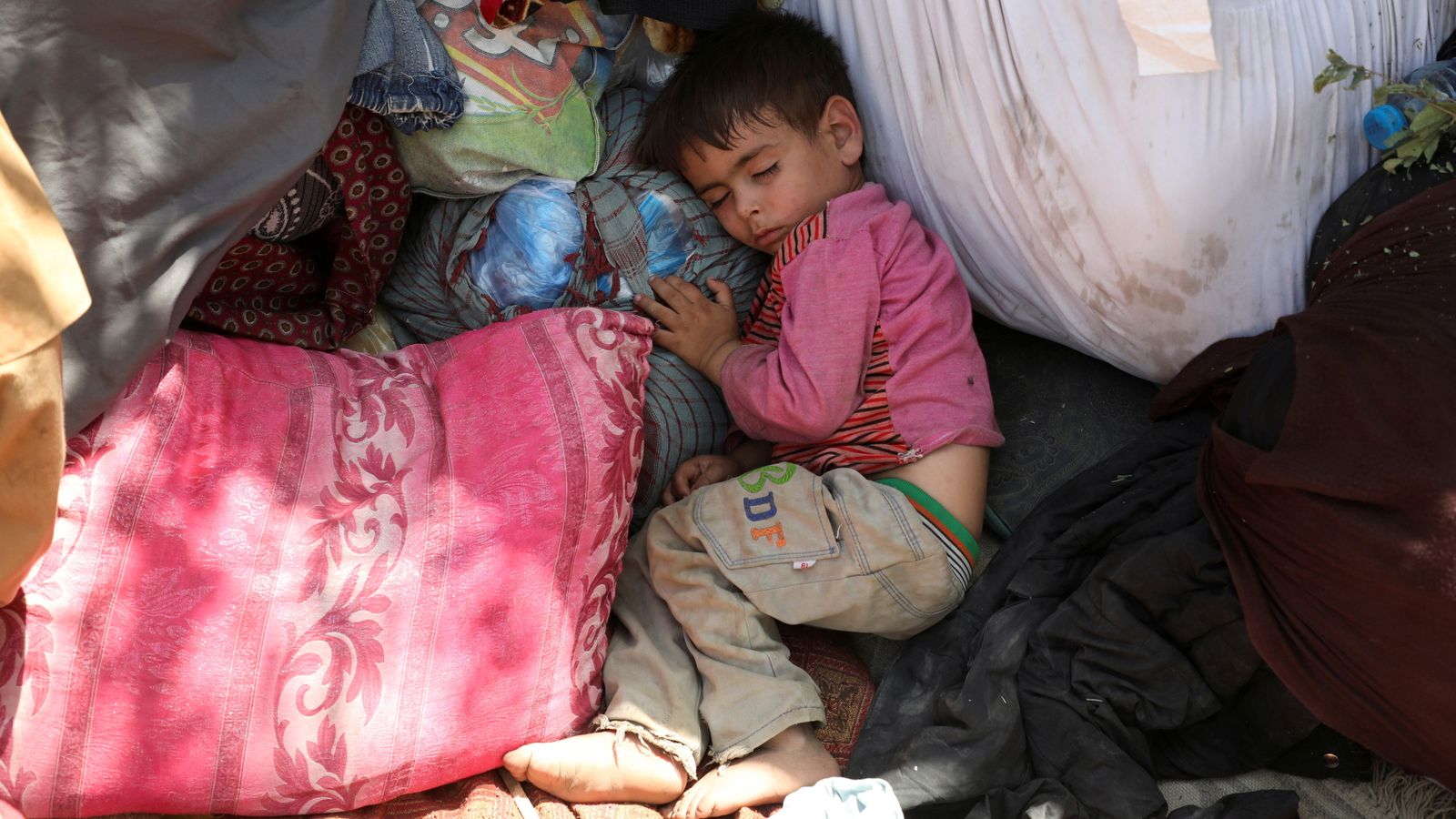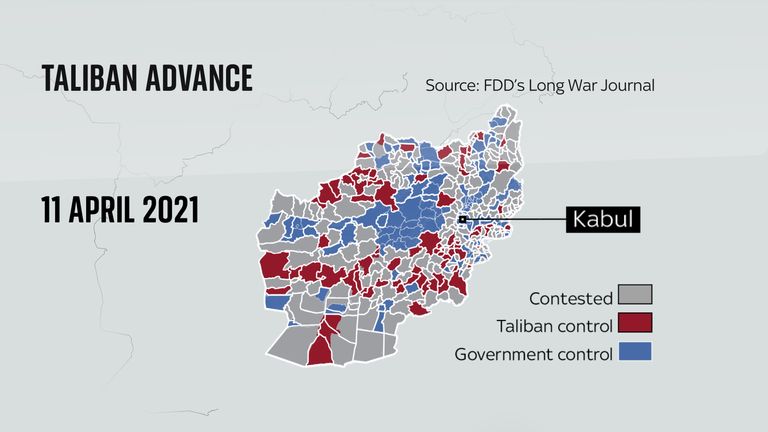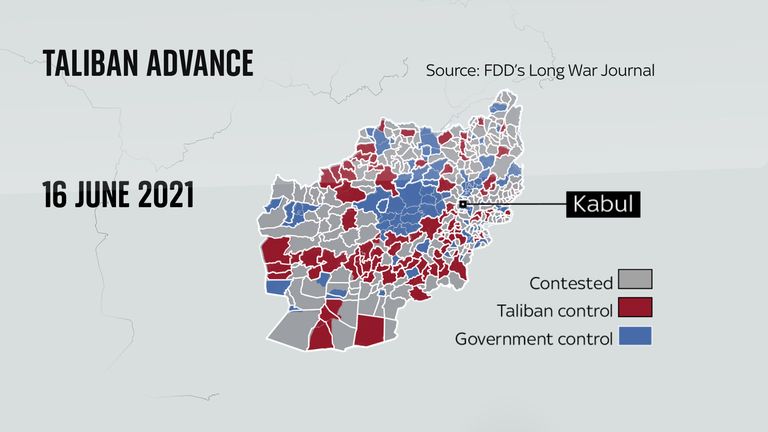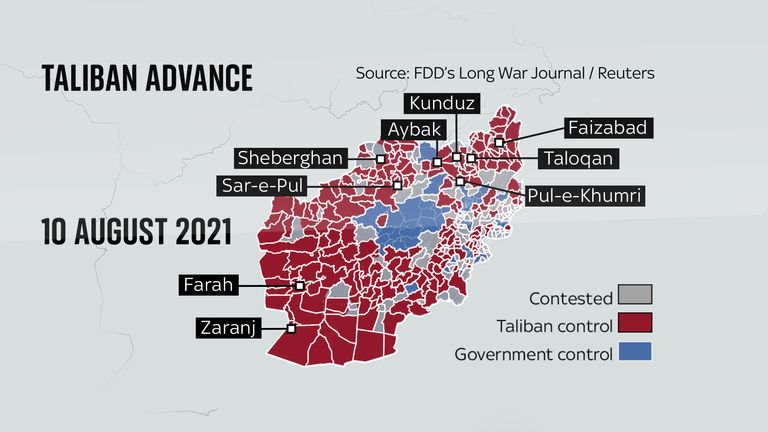Civilians in Afghanistan face a “deadly and dangerous” situation amid concerns that the capital Kabul could fall to the Taliban within 90 days, a former foreign secretary has said.
David Miliband, president of the International Rescue Committee, warned the West not to take its eyes off Afghanistan as the Taliban‘s forces continue to make gains after British and US troops were withdrawn.
He said: “The time when troops were there was not used to develop a stable political settlement for the country and the great fear for the moment is that the gains being enjoyed by the people are on the rack.”
Mr Miliband, who served as Labour’s foreign secretary between 2007 and 2010, noted that thousands of Afghans are being killed, are fleeing or are homeless as a result of the Taliban advance.
The Islamists now control 65% of Afghanistan and have taken or threaten to take 11 provincial capitals, a senior EU official said on Tuesday, while US intelligence estimates that Kabul could fall within 90 days.
Mr Miliband said 5,000 civilians were killed in the most recent fighting, 30,000 people a week are fleeing the country, and 350,000 people are homeless.
He added the refugee danger is “real and present” to neighbouring states, with 100,000 leaving Afghanistan each month and going into Pakistan and Iran.
“It is predominantly in the region but some will try to make it to Europe as well,” he added.
Mr Miliband said the approach since Britain and America entered Afghanistan in 2001 has been focused on the military endeavour first and then the political system.
“The abiding approach and I am afraid it ran right through the end, was that military endeavour should then be followed by an attempt to create a stable political system,” he said.
“I argued, from the beginning of my time, that those two things had to happen in parallel. It started with the Bonn Peace Conference of 2001-2, which excluded significant swathes of the Pashtu population of the country.
“So, the difficulty of developing politics that is based on compromise in a country that is highly decentralised has been an abiding problem from the beginning.
“That is not to say that there haven’t been significant gains, that as I say haven’t yet been erased, but I think it’s important to learn the right lesson.
“My lesson is, whether you are in the military, in diplomacy or in the humanitarian sector, none of them work without an effective approach to a political settlement.
“That can’t be done sequentially – military then political – they have to be done together.”
Earlier today, a new US intelligence assessment estimated that Taliban fighters could isolate Kabul in 30 days and possibly take it over in 90 days.
A US defence official cited US intelligence and said Afghan security forces could reverse the momentum by putting up more resistance.
Faizabad, in the northeastern province of Badakhshan, became the eighth provincial capital to be seized by the Taliban on Wednesday.
All gateways to Kabul, which lies in a valley surrounded by mountains, were choked with civilians entering the city and fleeing violence elsewhere, a Western security source there told Reuters.





